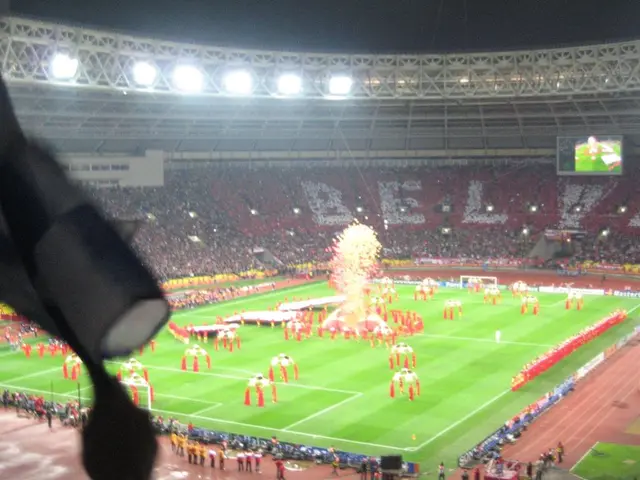South Korean corporations intensify investment in Vietnam as relations strengthen
Seoul and Hanoi are committed to deepening cooperation in high-tech, energy, and supply chain sectors, aiming to expand bilateral trade to $150 billion by 2030. This expansion focuses on areas such as semiconductors, AI, renewable and nuclear energy, critical minerals, digital transformation, manufacturing, logistics, and infrastructure projects including high-speed rail and smart cities.
During the Korea-Vietnam Business Forum held in Seoul on Tuesday, South Korean and Vietnamese business and government leaders pledged to cooperate in these key areas. The forum concluded with the signing of 52 memoranda of understanding between companies and institutions from both countries.
One of the significant announcements came from Daewoo E&C Chairman Jung, who announced that his company has devoted the past three years to prepare for participation in a new urban development project in the Thuong Cat region in Hanoi. This project will feature clean, eco-friendly space with Korean-style smart technologies and energy systems, and a 'K-Town' showcasing Korean culture, food, medical services, and beauty products.
In the energy sector, multiple partnerships involve developing clean energy industrial clusters, smart grid projects, floating solar farms, and high-voltage cable plants to support renewable energy. South Korea’s firms like SK Innovation and LS ECO ENERGY are heavily involved.
Agreements have also been signed on AI data centers, semiconductor production training, biotechnology, digital transformation initiatives, and smart city development. Vietnamese firms collaborate with Korean tech companies such as Samsung and LG CNS to build advanced data centers and AI capabilities.
Both countries emphasize mutual supply chain strengthening in semiconductors, machinery, and agricultural products to reduce reliance on single markets amid shifting global trade policies, particularly U.S. trade policy impacts.
Measures are being implemented to streamline cross-border trade and regulatory processes, and encourage Korean investments in Vietnam’s priority sectors aligned with Vietnam’s industrial development strategies.
Both sides also signed multiple accords to train skilled personnel in semiconductors, AI, biotechnology, and railway engineering by cooperating between universities and industries.
South Korean President Lee Jae Myung hosted a state dinner for Vietnamese General Secretary To Lam on Monday, marking the General Secretary's first visit to Korea in 11 years. About 200 Vietnamese officials and business leaders were also present, including Foreign Minister Bui Thanh Son, Petrovietnam Chair Le Manh Hung, Viettel Chair and CEO Tao Duc Thang, and Military Bank Chair Luu Trung Thai.
Over the past decade, South Korean conglomerates have invested billions of dollars into Vietnam, relying on it as a critical partner in their industrial supply chain. Samsung Electronics, the largest foreign direct investor in Vietnam, has invested $23.2 billion since 2008 and employs over 90,000 people in the country. LG Group has invested $8.24 billion in Vietnam, primarily through its subsidiaries, and recently announced an additional $1 billion investment aimed at boosting OLED manufacturing capabilities at its Haiphong facility.
Seoul is the largest foreign investor in Vietnam, with cumulative investment totaling $92.5 billion and about 10,000 South Korean companies operating in the country. Notable attendees at the forum included Chey Tae-won, chair of KCCI and SK Group, who emphasized the need for solidarity and cooperation with trustworthy partners due to global economic uncertainties, and Samsung Electronics President Park Seung-hee, who announced plans to expand investment in artificial intelligence and semiconductors, as well as Vietnam's digital transformation.
The commitment to cooperation extends to other areas as well. Hyundai Motor Group Executive Chair Chung Euisun, LG Group Chair Koo Kwang-mo, Lotte Group Chair Shin Dong-bin, and Daewoo Engineering and Construction Chair Jung Won-ju were among the attendees, indicating a broad commitment to the partnership.
In conclusion, through high-level governmental agreements and business partnerships, South Korea and Vietnam plan significant trade volume growth and economic integration by 2030, supported by a strong foundation in energy, technology, and supply chain modernization.
- The Korea-Vietnam Business Forum in Seoul culminated in the announcement of a new urban development project in Hanoi by Daewoo E&C, which will incorporate sports facilities using Korean-style smart technologies.
- In the realm of digital transformation, Vietnam and South Korea have signed agreements for semiconductor production training, AI data centers, and smart city development, which may lead to the advancement of sporting and entertainment facilities in these cities.







